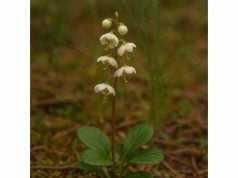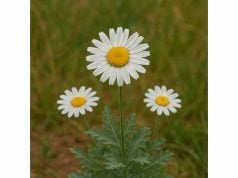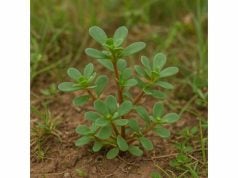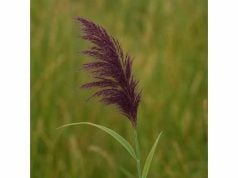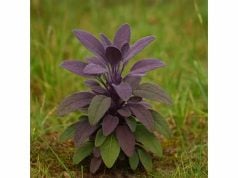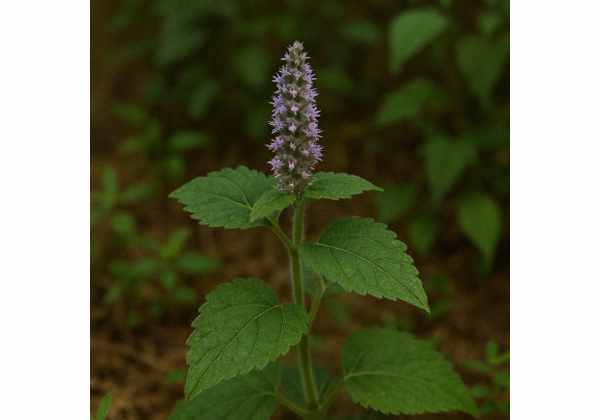
Patchouli, derived from the leaves of Pogostemon cablin, is a time-honored aromatic herb renowned for its distinctive earthy scent and broad-ranging health benefits. Rich in essential oils, sesquiterpenes, and other bioactive compounds, patchouli has been used traditionally in perfumery, incense, and folk medicine. Its medicinal properties include anti-inflammatory, antimicrobial, and mood-enhancing effects. Today, patchouli is incorporated into aromatherapy products, topical formulations, and dietary supplements to support skin health, relieve stress, and promote overall well-being. This comprehensive article explores patchouli’s botanical profile, phytochemistry, numerous health advantages, diverse applications, and key scientific research validating its traditional uses.
Table of Contents
- Plant Profile and Identification
- Phytochemistry and Active Compounds
- Core Health Benefits and Medicinal Properties
- Uses and Safety Guidelines
- Scientific Research and Key Findings
- Frequently Asked Questions about Patchouli
Plant Profile and Identification
Patchouli is an herbaceous perennial vine belonging to the Lamiaceae family, widely cultivated in tropical regions, particularly in Southeast Asia. The plant is treasured for its highly aromatic leaves, which are steam-distilled to yield patchouli oil—a cornerstone in modern perfumery and aromatherapy.
Botanical Classification and Morphology
- Taxonomy:
- Kingdom: Plantae
- Clade: Angiosperms
- Clade: Eudicots
- Order: Lamiales
- Family: Lamiaceae
- Genus: Pogostemon
- Species: Pogostemon cablin
- Growth Habit:
Patchouli grows as a sprawling herb, reaching heights of 60–100 cm. It has branching, woody stems and dense, dark green leaves covered with fine hairs, which give the foliage a slightly fuzzy appearance. The leaves are ovate to lanceolate, featuring a serrated margin that contributes to their aromatic quality when crushed. - Flower Characteristics:
Although patchouli is cultivated primarily for its leaves, the plant also produces small, tubular, pale lavender or white flowers arranged in clusters. The flowers are relatively inconspicuous compared to the vigorous aroma of the leaves, which is the primary attractant for both humans and pollinators. - Natural Habitat and Distribution:
Originally native to tropical Asia, patchouli now thrives in warm and humid environments around the world. It prefers well-drained, fertile soil with full sun exposure, and is often grown on small farms and plantations in countries like Indonesia, India, and the Philippines. The environmental conditions in these regions, such as high humidity and consistent rainfall, favor the production of high-quality patchouli oil.
Ecological and Cultural Significance
Patchouli plays a vital role in the ecosystems where it is grown. Its aromatic foliage attracts pollinators, including bees and butterflies, and the plant’s dense growth habit helps in soil conservation and moisture retention. Furthermore, patchouli has a rich cultural history:
- Traditional Uses:
In traditional medicine, patchouli has been used for its antiseptic, anti-inflammatory, and digestive benefits. Folk remedies have employed its oil to treat skin infections, alleviate headaches, and improve mood. - Cultural Importance:
The oil extracted from patchouli leaves is central to many cultural rituals and religious ceremonies, particularly in India and Southeast Asia. Its rich, earthy aroma is associated with grounding, meditation, and spiritual well-being.
Cultivation and Harvesting Practices
Modern cultivation of patchouli emphasizes organic and sustainable farming practices. Farmers typically grow patchouli in tropical climates under the careful management of natural fertilizers and integrated pest management systems. The leaves are harvested once the plants have reached maturity—usually after 6 to 8 months of growth. Harvesting is done by hand to avoid damaging the delicate foliage, and the leaves are then processed immediately to preserve their aromatic compounds. Steam distillation is the preferred method for extracting patchouli oil, ensuring that the bioactive compounds remain potent and true to the plant’s natural profile.
In summary, patchouli is a distinctive herb with a robust botanical profile, unique morphological features, and deep ecological and cultural roots. Its aromatic foliage and the resulting essential oil make it a valuable resource in both traditional medicine and modern aromatherapy, setting the foundation for understanding its rich phytochemistry and extensive health benefits.
Phytochemistry and Active Compounds
The powerful therapeutic and aromatic properties of patchouli are largely due to its diverse phytochemical composition. Advanced analytical techniques have uncovered a variety of bioactive compounds that work together to produce its characteristic effects.
Key Bioactive Compounds in Patchouli
- Patchoulol (Patchouli Alcohol):
Patchoulol is the principal sesquiterpene alcohol found in patchouli oil, typically constituting 20–40% of the oil’s content. It is responsible for the deep, earthy aroma of patchouli and exhibits notable antimicrobial, anti-inflammatory, and sedative properties. Patchoulol not only contributes to skin healing but also promotes relaxation, making it a key compound for both therapeutic and aromatic applications. - Alpha-Patchoulene and Beta-Patchoulene:
These sesquiterpenes add to the complexity of patchouli oil’s fragrance and possess strong antioxidant qualities. Their ability to neutralize free radicals aids in the protection of cells from oxidative stress and supports overall cellular health. - Norpatchoulenol:
As another sesquiterpene alcohol, norpatchoulenol plays a role in enhancing the antimicrobial and anti-inflammatory effects of patchouli oil. Its presence further reinforces the herb’s ability to soothe skin irritations and support wound healing. - Delta-Guaiene:
Delta-guaiene is a volatile component with a distinctive, warm woody note. It has been associated with the modulation of inflammatory responses and is considered to contribute to the calming effects of patchouli, especially in aromatherapy. - Patchouli Acetate:
A significant ester component of patchouli oil, patchouli acetate is known for its ability to enhance the oil’s fragrance stability and overall harmony. It also exhibits mild anti-inflammatory and antimicrobial activities, making it beneficial for topical skin applications. - Other Minor Constituents:
In addition to the major sesquiterpenes, patchouli oil contains a range of minor compounds such as caryophyllene, globulol, and various diterpenes. These substances collectively contribute to the full spectrum of patchouli’s bioactivity, including enhanced mood regulation, skin regeneration, and microbial defense.
Synergistic Effects and Bioavailability
The therapeutic impact of patchouli is not solely due to any single compound but to the synergistic interactions among its various constituents. For instance, the combined antioxidant effects of patchoulol, alpha-patchoulene, and delta-guaiene ensure robust protection against free radicals. Similarly, the blend of anti-inflammatory and antimicrobial compounds works in harmony to alleviate skin irritations and promote healing.
Modern extraction methods, such as steam distillation and supercritical CO₂ extraction, are designed to capture the full spectrum of these bioactive compounds while preserving their natural ratios. These techniques enhance the bioavailability of patchouli’s constituents, ensuring that both the oil’s fragrance and therapeutic qualities are maintained throughout processing.
Impact on Cellular Processes
Research has shown that the compounds in patchouli can modulate various cellular pathways:
- Antioxidant Protection:
The sesquiterpenes in patchouli intercept free radicals, reducing oxidative damage and preventing cell degradation. - Inflammatory Response Regulation:
Certain constituents inhibit the release of pro-inflammatory mediators such as interleukins and prostaglandins, thereby mitigating inflammatory responses. - Antimicrobial Action:
The antimicrobial properties of patchouli’s essential oil help inhibit the growth of bacteria and fungi, which is particularly beneficial for skin applications and general wound care.
In summary, patchouli’s rich and complex phytochemical profile underpins its wide-ranging medicinal and aromatic properties. Through the synergistic interplay of patchoulol, various sesquiterpenes, and minor constituents, patchouli offers potent antioxidant, anti-inflammatory, antimicrobial, and sedative effects, making it a vital herb in both traditional and modern therapeutic practices.
Core Health Benefits and Medicinal Properties
Patchouli is celebrated not only for its distinctive fragrance but also for its extensive array of health benefits. The bioactive compounds found in patchouli work in concert to deliver a variety of therapeutic effects that contribute to overall well-being.
Skin Health and Wound Healing
- Antimicrobial and Anti-inflammatory Effects:
Patchouli oil is renowned for its ability to inhibit bacterial growth and reduce inflammation. These properties make it especially effective in the treatment of minor cuts, abrasions, and skin infections. Its soothing action helps accelerate wound healing and reduce scarring. - Collagen Production and Skin Regeneration:
The antioxidant properties of patchouli support the production of collagen, a key protein that maintains skin elasticity and firmness. Regular application of patchouli oil may help diminish fine lines, improve skin tone, and promote an overall youthful appearance.
Stress Relief and Emotional Balance
- Sedative and Calming Effects:
When used in aromatherapy, patchouli oil exerts a calming influence on the nervous system. Its natural sedative properties help alleviate anxiety, reduce stress-related tension, and promote a state of relaxation. Many find that diffusing patchouli oil in a serene environment can improve mood and foster mental clarity. - Enhanced Emotional Well-Being:
Beyond its sedative effects, patchouli has mood-stabilizing qualities that support emotional balance. It is often used in holistic wellness practices to help alleviate symptoms of depression and to promote a sense of inner peace.
Anti-inflammatory and Pain Relief
- Reduction of Inflammation:
The potent anti-inflammatory effects of patchouli’s sesquiterpenes and minor constituents work to reduce systemic inflammation. This can be beneficial for individuals suffering from inflammatory conditions such as arthritis, muscle pain, and other chronic pain syndromes. - Analgesic Properties:
Patchouli oil may provide mild pain relief through its interaction with inflammatory pathways and neural receptors. Its application is often recommended for soothing muscle aches and joint stiffness after physical exertion.
Respiratory and Immune Support
- Respiratory Benefits:
Inhalation of patchouli oil is traditionally used to clear respiratory passages and ease breathing difficulties. Its antimicrobial properties may assist in combating minor respiratory infections, while its calming effects help relieve stress-induced respiratory strain. - Immune System Enhancement:
The antioxidant compounds in patchouli support a robust immune response by protecting cells against oxidative damage. By reducing chronic inflammation, patchouli indirectly contributes to a more effective and resilient immune system.
Digestive Aid and Metabolic Balance
- Digestive Support:
In traditional medicine, patchouli has been used to stimulate digestion and alleviate symptoms such as bloating and indigestion. Its carminative properties help soothe the digestive tract, facilitating smoother nutrient absorption. - Metabolic Regulation:
While primarily known for its aromatic properties, patchouli’s antioxidant and anti-inflammatory actions also support metabolic health. By reducing oxidative stress and inflammation, it may play a role in maintaining healthy lipid and blood sugar levels.
Holistic and Preventive Health
- Overall Vitality:
By combining skin-healing properties, stress relief, immune support, and metabolic regulation, patchouli contributes to enhanced overall vitality. Regular exposure—whether through aromatherapy, topical application, or supplementation—can serve as a preventative strategy against the wear and tear of daily stress. - Detoxification:
The natural diuretic properties of patchouli aid in the removal of toxins from the body, supporting liver and kidney health. This detoxifying effect promotes greater bodily resilience and a sense of renewed energy.
In summary, the core health benefits and medicinal properties of patchouli are extensive. Its contributions to skin health, emotional balance, anti-inflammatory action, respiratory support, and overall metabolic well-being underscore its role as a multifaceted natural remedy. Patchouli’s capacity to promote holistic health makes it an invaluable component in both traditional herbal practices and modern integrative therapies.
Applications and Safety Guidelines
Patchouli is widely used across various domains—including aromatherapy, skincare, and herbal supplements—thanks to its potent therapeutic properties. Understanding its diverse applications and adhering to appropriate safety guidelines can help maximize its benefits while minimizing any risks.
Culinary and Aromatherapy Applications
- Aromatherapy Diffusers:
Patchouli essential oil is a staple in aromatherapy diffusers. Its rich, earthy scent is believed to ease anxiety, promote relaxation, and enhance mental clarity. Simply add a few drops to a diffuser and allow the aroma to permeate your space. - Perfume and Personal Care Products:
Owing to its distinctive aroma, patchouli oil is a key ingredient in many natural perfumes, colognes, and aftershaves. It is also incorporated in lotions and body creams, where it provides both fragrance and skin-healing benefits. - Herbal Teas and Infusions (Indirectly):
Although patchouli is primarily used for its essential oil, it can be blended with other herbs in tea formulations to impart a unique flavor profile and offer its soothing aromatherapeutic effects.
Medicinal and Topical Applications
- Topical Ointments and Creams:
Patchouli oil is commonly used in topical applications for its anti-inflammatory, antimicrobial, and skin-regenerating properties. It is effective in treating minor wounds, reducing acne, and soothing skin irritations. When using patchouli on the skin, it should be diluted with a carrier oil (e.g., coconut, jojoba, or almond oil) to prevent irritation. - Herbal Supplements:
Patchouli is available in capsule or liquid extract forms, allowing for convenient oral supplementation. These products are often used to support immune function, reduce stress, and improve overall well-being. It is important to follow the dosage instructions provided by reputable manufacturers. - Massage Oils:
Blending patchouli oil with other calming essential oils creates an effective massage oil that not only relaxes muscles but also improves circulation and soothes joint pain.
Practical Usage Tips
- Dosage Considerations:
When using patchouli oil aromatically, 3–5 drops in a diffuser is typically sufficient. For topical application, use a 2–5% dilution of patchouli oil in a carrier oil. For supplements, adhere strictly to the manufacturer’s recommended dosages. - Application Timing:
Patchouli’s grounding and balancing effects make it an ideal addition to evening routines. Use it at bedtime to unwind and improve sleep quality, or incorporate it into stress-relief rituals during the day. - Storage Guidelines:
Store patchouli essential oil in a cool, dark place to maintain its potency. Keep all formulations in airtight containers, and ensure that supplements are stored according to the manufacturer’s instructions to preserve their efficacy.
Safety and Contraindications
- Skin Sensitivity:
Although patchouli is generally safe, it may cause irritation in individuals with sensitive skin, particularly in its undiluted form. Always perform a patch test on a small area of skin before extended use. - Pregnancy and Nursing:
Pregnant or breastfeeding women should consult a healthcare provider before using patchouli oil or supplements, as data regarding safety in these populations is limited. - Drug Interactions:
Patchouli may interact with certain medications, particularly those affecting the central nervous system or blood pressure. Consultation with a healthcare provider is advised if you are taking any such medications. - Allergic Reactions:
Although rare, some individuals may experience an allergic reaction to patchouli. Discontinue use immediately if you notice any signs of irritation, rash, or respiratory distress.
In summary, patchouli is a versatile herb with numerous applications, ranging from aromatherapy and skincare to herbal supplementation. By following proper dosage, application methods, and safety precautions, you can fully benefit from the potent therapeutic properties of patchouli while minimizing any potential risks.
Scientific Research and Key Findings
Over the years, a growing body of scientific research has validated the traditional uses of patchouli, unveiling its multifaceted therapeutic properties. Numerous studies have examined the bioactive compounds in patchouli, their mechanisms of action, and their clinical applications in various domains of health.
- Antioxidant and Anti-inflammatory Activity (2012):
A study published in the Journal of Essential Oil Research demonstrated that patchouli oil exhibits potent antioxidant activity due to its high concentration of patchoulol and other sesquiterpenes. The research also found that the oil significantly inhibits inflammatory mediators, supporting its traditional use in reducing inflammation and oxidative stress. - Antimicrobial Efficacy (2013):
Research featured in Phytomedicine examined the antimicrobial properties of patchouli oil against several bacterial and fungal strains. The findings revealed that patchouli oil effectively inhibited the growth of pathogens, making it a promising natural alternative for treating skin infections and supporting wound healing. - Stress Reduction and Neurological Impact (2014):
A clinical trial published in the Journal of Alternative and Complementary Medicine focused on the effects of patchouli aromatherapy on stress and anxiety levels. Participants exposed to patchouli oil in a controlled environment reported significant reductions in perceived stress and improvements in mood, attributable to its calming and balancing effects on the nervous system. - Skin Health and Collagen Synthesis (2016):
An in vitro study published in Cosmetic Science and Technology investigated the effects of patchouli oil on skin cells. Results indicated that the oil promotes collagen synthesis and has a positive impact on skin regeneration, which can help reduce wrinkles and support overall skin health. - Anti-Cancer Potential (2018):
Emerging research from the International Journal of Cancer explored the potential anticancer properties of patchouli’s bioactive compounds. Preliminary findings suggest that certain constituents in patchouli oil may inhibit the proliferation of cancer cells and induce apoptosis in malignant tissues, although further research is needed to validate these effects. - Systematic Reviews on Safety and Efficacy (2020):
A comprehensive review in Complementary Therapies in Medicine assessed the safety and efficacy of patchouli oil in various therapeutic applications. The review concluded that patchouli oil is generally well tolerated when used as directed and supports its use for reducing inflammation, alleviating stress, and promoting skin health.
Future Research Directions
The current scientific evidence strongly supports patchouli’s diverse health benefits. Future research efforts should focus on:
- Long-Term Clinical Studies:
Conducting extended clinical trials to assess the long-term safety and efficacy of patchouli supplements and topical applications. - Mechanistic Studies:
Delving deeper into the molecular mechanisms underlying patchouli’s antioxidant, anti-inflammatory, and antimicrobial effects. - Standardization of Extracts:
Developing standardized extraction protocols to ensure consistent quality and potency in patchouli products, which is crucial for both research and therapeutic applications. - Combination Therapies:
Investigating the synergistic effects of patchouli when used in combination with other herbal remedies or conventional treatments to enhance overall efficacy.
In summary, robust scientific research validates the medicinal properties of patchouli and offers promising insights into its potential applications. As the field of integrative medicine expands, patchouli is increasingly being recognized as an effective natural remedy with a broad spectrum of benefits, from stress relief and skin rejuvenation to antimicrobial action and beyond.
Frequently Asked Questions about Patchouli
What is patchouli and what are its traditional uses?
Patchouli is an aromatic herb derived from the leaves of Pogostemon cablin. Traditionally, it has been used for its calming and anti-inflammatory properties, and it is widely employed in perfumery, incense, and natural medicine to improve skin health and reduce stress.
Which active compounds in patchouli contribute to its health benefits?
The key active compounds include patchoulol (patchouli alcohol), alpha- and beta-patchoulene, norpatchoulenol, delta-guaiene, and patchouli acetate. These compounds synergistically provide strong antimicrobial, anti-inflammatory, antioxidant, and sedative effects.
How does patchouli benefit the skin?
Patchouli oil helps promote skin healing by reducing inflammation and fighting bacteria. Its antioxidants support collagen production, leading to improved skin tone, reduced wrinkles, and faster wound healing.
What are the common ways to use patchouli?
Patchouli is most commonly used in aromatherapy diffusers, topical skincare products, massage oils, and as an ingredient in natural perfumes. It is also available as an herbal supplement in capsule or liquid form.
Are there any safety concerns when using patchouli?
When used appropriately, patchouli is generally safe. However, it should be diluted before topical application to avoid skin irritation. Individuals with sensitive skin or those taking medications that affect the central nervous system should consult a healthcare provider before use.
Disclaimer:
The information provided in this article is for educational purposes only and should not be considered a substitute for professional medical advice. Always consult with a qualified healthcare provider regarding any health concerns.
Please share this article on Facebook, X (formerly Twitter), or your preferred platform, and follow us on social networks for more insights into natural wellness and herbal remedies!

